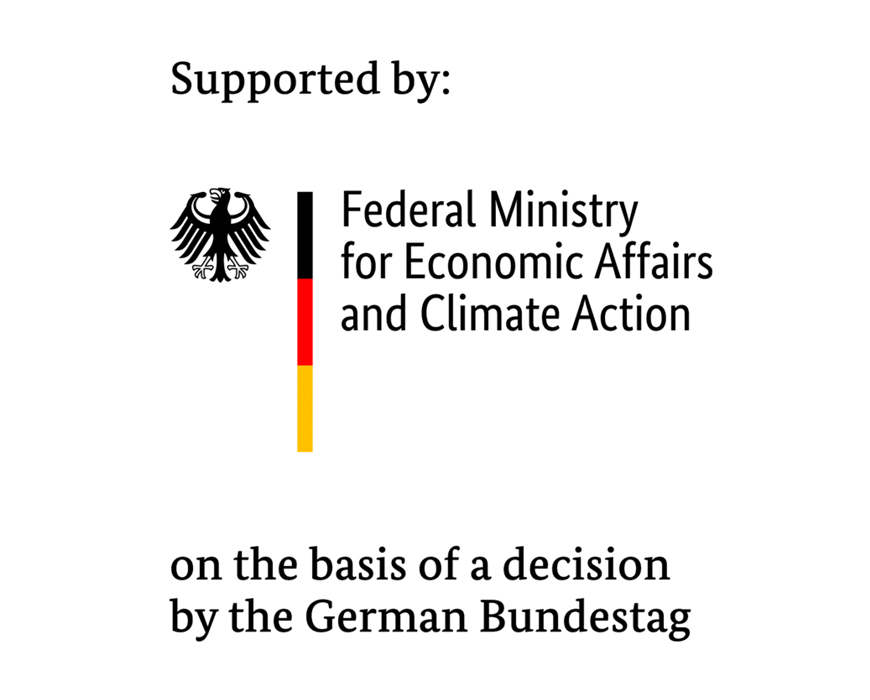| Funding: | Federal Ministry for Economic Affairs and Climate Action (BMWK) |
| Partner: | Fraunhofer IWES (applicant and alliance coordinator), Technische Universität Dresden, Institute of Concrete Construction (IMB), Leibniz Universität Hannover, Test Center Support Structures in Hannover (TTH), Bauunternehmung Gebr. Echterhoff GmbH & CO. KG, Vallourec Deutschland GmbH |
| Duration: | 01/2019 - 11/2022 |
- The foundation structures of offshore wind energy turbines are subjected to considerable loads when in operation. The consequent interactions between the foundation structure and the ground result in modified load-bearing behavior.
- At present, servo hydraulic actuators are used for the life testing of these foundation structures, but their load frequency is limited.
- The ResoWind research project is developing an optimized test method employing better suited unbalance drives, which significantly shorten the required test period and thus also lower the associated costs.
The foundation structures of offshore wind energy turbines are subject to considerable loads resulting from vibrations. At the same time, these vibrations also affect the interaction between the foundation structure and the ground and consequently have an impact on the overall stability of the structure.
Accelerated life tests return important findings for understanding these interactions and designing the components optimally. This involves the foundation and support structure versions being subjected to high loads with the help of servo hydraulic actuators in physical model tests. However, the load frequency of these actuators is limited. Unbalance drives allowing load frequencies close to the natural frequency of the test specimen and therefore dynamic magnification of the applied excitation forces are far better suited.
In the “Resonance-Based Test Methods for Cost- and Time-Optimized Life Tests of Support Structure Elements of Wind Energy Turbines” (ResoWind) research project, the Fraunhofer IWES is developing a test method with unbalanced drives in collaboration with partners. The total energy required for such tests can be between 100 and 1,000 times lower than that required by a servo hydraulic test system. Consequently, the required testing period is also considerably shortened and the associated costs reduced significantly.
In parallel to the testing, the Fraunhofer IWES is also conducting numerical analyses based on a continuously further developed program system for modeling. Here, the goal is the implementation of experimental test series and the future use of the modeling system in the form of a virtual test bench.
